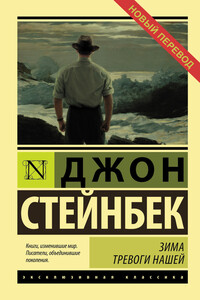“I wish the Jerries thought that,” the tail
gunner says. “I wish you could get Goering’s yellow noses and them damned flak
gunners convinced of that.”
“Well anyway,” the waist gunner says, “I looked
through that paper pretty close. It seems to me that the folks at home are
fighting one war and we’re fighting another one. They’ve got theirs nearly won
and we’ve just got started on ours. I wish they’d get in the same war we’re in.
I wish they’d print the casualties and tell them what it’s like. I think maybe
that they’d like to get in the same war we’re in if they could get it to do.”
The tail gunner comes from so close to the
border of Kentucky he talks like a Kentuckian. “I read a very nice piece in a
magazine about us,” he says. “This piece says we’ve got nerves of steel. We
never get scared. All we want in the world is just to fly all the time and get
a crack at Jerry. I never heard anything so brave as us. I read it three or
four times to try and convince myself that I ain’t scared.”
“There was almost solid red flack over Bremen
last Thursday,” the radio man says. “Get much more and we can walk home over
solid flak. I hate that red flak. We sure took a pasting Thursday.”
“Well, we didn’t get any,” says Henry Maurice
Grain, one of the gunners. “We got the nose knocked out of our ship, but that
was an accident. One of the gunners in a ship high on ahead tossed out some
shell casings and they came right through the nose. They’ve got her nearly
fixed up now.”
“But anyway,” the first man says doggedly, “I
wish they’d tell them at home that the war isn’t over and I wish they wouldn’t
think we’re so brave. I don’t want to be so brave. Shall we have another beer?”
“What for?” says the tail gunner. “This stuff
hasn’t got even enough character for you to dislike it, I’m going back to wipe
my guns. Then I won’t have to do it in the morning.”
They stand up and file slowly out of the pub.
It is still daylight. The pigeons are flying about the tower of an old Gothic
church, a kind of architecture especially suited to nesting pigeons.
The hotel taken over by the Red Cross is
crowded with men in from the flying fields which dot the countryside. Our bus
drives up in front and we pile in. The crew looks automatically at the sky. It
is clear, with little puffs of white cloud suspended in the light of a sun that
has already gone down.
“Looks like it might be a clear day,” the radio
man says. “That’s good for us and it’s good for them to get at us.”
The bus rattles back toward the field. The tail
gunner muses. “I hope old Red Beard has got a bad cold,” he says. “I didn’t
like the look in his eye last time.”
(Red Beard is an enemy fighter pilot who comes
so close that you can almost see his face.)
SUPERSTITION
BOMBER STATION IN ENGLAND, June 30, 1943—It
is a bad night in the barracks, such a night as does not happen very often. It
is impossible to know how it starts. Nerves are a little thin and no one is
sleepy. The tail gunner of the other outfit in the room gets down from his
upper bunk and begins rooting about on the floor.
“What’s the matter?” the man on the lower bunk
asks.
“I lost my medallion,” the tail gunner says.
No one asks what is was, a St. Christopher or a
good-luck piece. The fact of the matter is that it is his medallion and he has
lost it. Everyone gets up and looks. They move the double-decker bunk out from
the wall. They empty all the shoes. They look behind the steel lockers. They
insist that the gunner go through all his pockets. It isn’t a good thing for a
man to lose his medallion. Perhaps there has been an uneasiness before. This
sets it. The uneasiness creeps all through the room. It takes the channel of
being funny. They tell jokes; they rag one another. They ask shoe sizes of one
another to outrage their uneasiness. “What size shoes you wear, Brown? I get
them if you conk out.” The thing runs bitterly through the room.
And then the jokes stop. There are many little
things you do when you go out on a mission. You leave the things that are to be
sent home if you have an accident. You leave them under your pillow, your
photographs and the letter you wrote, and your ring. They’re under your pillow,
and you don’t make up your bunk. That must be left unmade so that you can slip
right in when you get back. No one would think of making up a bunk while its
owner is on a mission. You go out clean-shaven too, because you are coming
back, to keep your date. You project your mind into the future and the things
you are going to do then.





